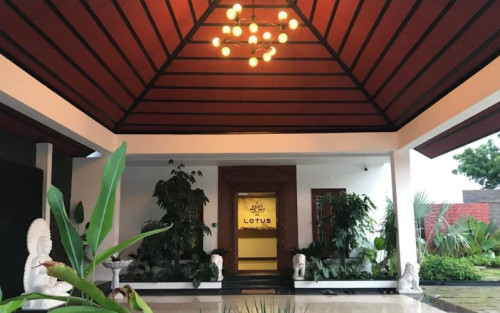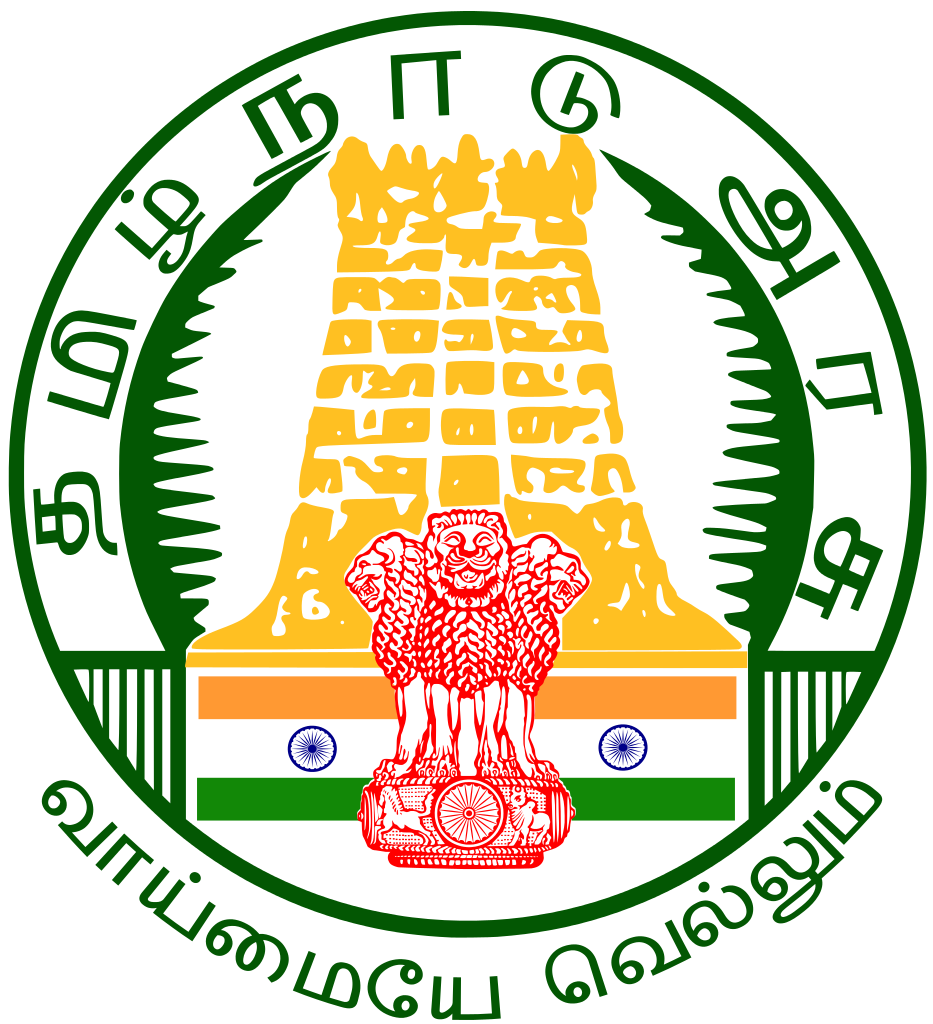








Lotus Wellness and Rehabilitation Center
Verified Center
This provider's information has been quality-checked by Recovery.com's Research Team for accuracy and completeness, including center verification through appropriate third-party organizations.
Treatment Focus
This center treats substance use disorders and co-occurring mental health conditions. Your treatment plan addresses each condition at once with personalized, compassionate care for comprehensive healing.
Primary Level of Care
Offering intensive care with 24/7 monitoring, residential treatment is typically 30 days and can cover multiple levels of care. Length can range from 14 to 90 days typically.
Treatment Focus
This center treats substance use disorders and co-occurring mental health conditions. Your treatment plan addresses each condition at once with personalized, compassionate care for comprehensive healing.
Primary Level of Care
Offering intensive care with 24/7 monitoring, residential treatment is typically 30 days and can cover multiple levels of care. Length can range from 14 to 90 days typically.
Private Pay
You pay directly for treatment out of pocket. This approach can offer enhanced privacy and flexibility, without involving insurance. Exact costs vary based on program and length of stay. Contact the center for specific details.
Lotus Wellness and Rehabilitation Center
Lotus Wellness and Rehabilitation Center
About Lotus Wellness and Rehabilitation Center
Lotus is a Holistic Luxury Rehab synonymous with style and impeccable love, care and support. Sophisticated yet cool, with Timeless style, it is the ideal place to recover. Lotus is created to be a safe haven where you can find recovery, peace, rest and happiness. The calm and peaceful centre will serve as a private and tranquil environment where you can let go of your past and future concerns and start working on yourself. Recovery Begins Here..
Holistic Addiction Treatment Philosophy of Lotus
At Lotus, they do not label you an addict or alcoholic, nor do they believe that you have a disease. They have found that damaging labels, such as addict and alcoholic, rob you of your true identity. Instead, their focus is on healing the underlying conditions that are causing you to use drugs and alcohol. They do this by utilizing a highly individualized treatment program with therapists who are experienced in healing the underlying causes of addiction.
All-Encompassing Absolute Wellness
The medical experts at Lotus combine the best from general and alternative medicine to support you individually and provide complementary therapies enabling you to address problem areas and build a healthier lifestyle. Their holistic one-on-one approach is a superior version of the 12-Step program and offers state-of-the-art services that will keep you engaged and enthusiastic about healing. During treatment, you will feel empowered instead of powerless.
A Passion for Healing and Recovery
In an exclusive and caring environment, working with one client at a time, they offer the most comprehensive and intensive treatment programmes available. They make sure everyone is given premium care with a personal touch. At Lotus, the treatment programmes for addiction, mental health and well-being are based on their core principles of empathy, care and pragmatism.

Highlights from the Center
Highlights
These highlights are provided by and paid for by the center.
1-on-1 Counseling
Customized Treatment Plans
Holistic Approach
Dietary Accommodations
Center Overview
Treatment Focus
This center treats substance use disorders and co-occurring mental health conditions. Your treatment plan addresses each condition at once with personalized, compassionate care for comprehensive healing.

Lotus Wellness and Rehabilitation Center
Pricing and Program Length
Estimated Center Costs
The cost listed here (₹110,000 - ₹450,000 / $1350 - $5450 month), is an estimate of program cost. Center price can vary based on program and length of stay. Contact the center for more information. Recovery.com strives for price transparency so you can make an informed decision.




Other Lotus Centers
Recovery.com Verified Listing
Recovery.com verified that the name, location, contact information and license to operate for this treatment provider are valid and up-to-date.

Licensed
Recovery.com is an independent, third-party mental health resource. Verification does not imply endorsement and does not guarantee the quality of treatment services.
Meet Your Care Team

Mrs. Om Priyadarshini B.Com
Founder-CEO Lotus Wellness

Dr. G Om Prakasham
Chairman - Lotus Wellness, Senior Consultant Cardiac Surgeon
M.B.B.S, MS ,MCh, FACS (Singapore)

Dr. Paranthaman Sethupathi
Consultant Psychiatrist
MRCPsych, MBA

Dr. Nagarajan R
Consultant Endocrine Surgeon
M.B.B.S, MS, MCh

Dr. Vijaidarshan
Consultant Physician
M.B.B.S, MD

Dr. Jacob Raymond MD (Ayu)
Consultant Ayurvedic Physician

Dr Paari Vijayaraghavan
Senior Hepatobiliary and Liver Transplant Specialist
Your Care Options
Specializations
Personality Disorders
Personality disorders destabilize the way a person thinks, feels, and behaves. If untreated, they can undermine relationships and lead to severe distress.
Alcohol
Using alcohol as a coping mechanism, or drinking excessively throughout the week, signals an alcohol use disorder.
Anxiety
Anxiety is a common mental health condition that can include excessive worry, panic attacks, physical tension, and increased blood pressure.
Detox
Detox fully and safely removes toxic substances from the body, allowing the next steps in treatment to begin with a clean slate.
Co-Occurring Disorders
A person with multiple mental health diagnoses, such as addiction and depression, has co-occurring disorders also called dual diagnosis.
Depression
Symptoms of depression may include fatigue, a sense of numbness, and loss of interest in activities. This condition can range from mild to severe.
Wellness
Wellness philosophies focus on the physical, mental, and spiritual wellness of each patient, helping them restore purpose with natural remedies.
Who We Treat
Older Adults
Addiction and mental health treatment caters to adults 55+ and the age-specific challenges that can come with recovery, wellness, and overall happiness.
Adolescents
Teens receive the treatment they need for mental health disorders and addiction, with the added support of educational and vocational services.
Executives
Executive treatment programs typically directly support the needs of people who manage businesses and may provide flexible schedules and office space to allow work during treatment.
Young Adults
Emerging adults ages 18-25 receive treatment catered to the unique challenges of early adulthood, like college, risky behaviors, and vocational struggles.
LGBTQ+
Addiction and mental illnesses in the LGBTQ+ community must be treated with an affirming, safe, and relevant approach, which many centers provide.
Midlife Adults
For adults ages 40+, treatment shifts to focus on the unique challenges, blocks, and risk factors of their age group, and unites peers in a similar community.
Professionals
Busy, high-ranking professionals get the personalized treatment they need with greater accommodations for work, privacy, and outside communication.
Treatment Services
Detox
Detox fully and safely removes toxic substances from the body, allowing the next steps in treatment to begin with a clean slate.
Licensed Primary Mental Health
Some primary care providers offer mental health diagnosis and treatment. This can prevent patients from developing more serious conditions.
Outpatient
During outpatient rehab, patients attend a structured treatment program while continuing to live at home.
Residential
In a residential rehab program, patients live onsite, with access to daily treatment and 24-hour care. An average stay is 30-90 days.
Sober Living
These structured living environments help people transition out of rehab. Residents have more freedom than they do during rehab, but still follow certain rules.
Approaches
Evidence-Based
A combination of scientifically rooted therapies and treatments make up evidence-based care, defined by their measured and proven results.
Holistic
A non-medicinal, wellness-focused approach that aims to align the mind, body, and spirit for deep and lasting healing.
Naturopathy
Natural remedies like nutrition management and acupuncture help relieve withdrawal symptoms and help patients maintain sobriety without medications.
Wellness
Wellness philosophies focus on the physical, mental, and spiritual wellness of each patient, helping them restore purpose with natural remedies.
Therapies
1-on-1 Counseling
Patient and therapist meet 1-on-1 to work through difficult emotions and behavioral challenges in a personal, private setting.
Play Therapy
This approach is commonly used with children. It incorporates elements of play and self-expression, like boardgames, finger painting, dolls, and blocks.
Mindfulness Therapy
This ancient practice can be mental, emotional, and even spiritual. In meditation, you focus your attention on the present moment without judgement.
Adventure Therapy
This experiential approach uses the physical and emotional challenges of outdoor activities as tools for personal growth.
Attachment-Based Family Therapy
ABFT is a trauma-focused therapy that teaches you to form healthy relationships by rebuilding trust and healing attachment issues formed in childhood.
Aromatherapy
Inhaling or topically applying essential oils can help relieve stress, soothe pains, and relieve emotional distress.
Art Therapy
Visual art invites patients to examine the emotions within their work, focusing on the process of creativity and its gentle therapeutic power.
Ayurveda
One of the oldest medicine systems, Ayurveda is based on the idea that wellness lies in the mind-body-spirit balance and can be achieved through natural interventions.
Conditions We Treat
Pornography Addiction
A person with a porn addiction is emotionally dependent on pornography to the point that it interferes with their daily life and relationships.
Schizophrenia
Schizophrenia is a serious mental health condition that causes hallucinations, delusions, and disordered thinking.
Grief and Loss
Grief is a natural reaction to loss, but severe grief can interfere with your ability to function. You can get treatment for this condition.
Personality Disorders
Personality disorders destabilize the way a person thinks, feels, and behaves. If untreated, they can undermine relationships and lead to severe distress.
ADHD, ADD
ADHD is a common mental health condition caused by dopamine imbalance. Common symptoms include inattention, hyperactivitiy, and impulsivity.
Anger
Although anger itself isn't a disorder, it can get out of hand. If this feeling interferes with your relationships and daily functioning, treatment can help.
Anxiety
Anxiety is a common mental health condition that can include excessive worry, panic attacks, physical tension, and increased blood pressure.
Bipolar
This mental health condition is characterized by extreme mood swings between depression, mania, and remission.
Substances We Treat
Alcohol
Using alcohol as a coping mechanism, or drinking excessively throughout the week, signals an alcohol use disorder.
Benzodiazepines
Benzodiazepines are prescribed to treat anxiety and sleep issues. They are highly habit forming, and their abuse can cause mood changes and poor judgement.
Chronic Relapse
Consistent relapse occurs repeatedly, after partial recovery from addiction. This condition requires long-term treatment.
Co-Occurring Disorders
A person with multiple mental health diagnoses, such as addiction and depression, has co-occurring disorders also called dual diagnosis.
Cocaine
Cocaine is a stimulant with euphoric effects. Agitation, muscle ticks, psychosis, and heart issues are common symptoms of cocaine abuse.
Drug Addiction
Drug addiction is the excessive and repetitive use of substances, despite harmful consequences to a person's life, health, and relationships.
Ecstasy
Ecstasy is a stimulant that causes intense euphoria and heightened awareness. Abuse of this drug can trigger depression, insomnia, and memory problems.
Heroin
Heroin is a highly addictive and illegal opioid. It can cause insomnia, collapsed veins, heart issues, and additional mental health issues.
Languages
Aftercare
Care Designed for Your Needs
Personal Amenities
Amenities
Special Considerations
Couples program
Using gentle clinical care, therapists guide patients and their partner through guided sessions to address issues and work towards lasting solutions.
Executive Program
Addiction and mental health treatment for executives typically involves high discretion, greater technology access, and more private, 1-on-1 care.
Flexible technology policies
Centers with flexible technology policies allow professionals to stay in touch with work and give patients a greater sense of connection and normalcy.
Gender-specific groups
Patients in gender-specific groups gain the opportunity to discuss challenges unique to their gender in a comfortable, safe setting conducive to healing.
Activities
Yoga
Yoga is both a physical and spiritual practice. It includes a flow of movement, breathing techniques, and meditation.

Learn More About the Center
More About Lotus Wellness
Read more about Lotus Wellness, their treatment model, and their talented team of staff.
Photo Gallery
See more of Lotus Wellness and the luxury treatment accommodations they provide at their world-class facility.
Addictions Treated at Lotus Wellness And Recovery
Lotus Wellness treats a wide variety of addictions, including internet addiction and love addiction.
Treatment Collaborators
Browse through the companies and organizations Lotus Wellness collaborates with to give their best, most comprehensive treatment to their clients.
What people are saying
Treatment
5.0
Accommodations
5.0
Food & Nutrition
5.0
Value
5.0
Pros
- Supportive Aftercare (99)
- Beautiful Location (91)
- Very Informative (61)
- Treated My Loved One With Respect (61)
Uma
Treatment in 2024 • (60 days) • Reviewed 11/15/24
Former Client
•Management
•Coimbatore
James
Treatment in 2023 • (60 days) • Reviewed 03/23/24
Former Client
•Government
•Mumbai
Sudarsan
Treatment in 2023 • (45 days) • Reviewed 02/27/24
Former Client
•Business
Santhi
Treatment in 2025 • (90 days) • Reviewed 10/14/25
Former Client
•IT professional
•Bangalore
Lotus Wellness and Rehabilitation Center
Manju
Treatment in 2025 • (90 days) • Reviewed 10/10/25
Loved One of a Former Client
•Bangalore
Lotus Wellness and Rehabilitation Center





